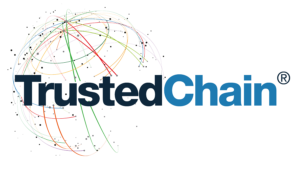TrustedChain® for traceability and safety of the food chain
As Italians we are always very proud of the fruits of our land and often find ourselves defending Made in Italy with a drawn sword; despite this, not a month goes by that there are no investigations and arrests related to fraud perpetrated against consumers.
Speaking of Made in Italy, those who have traveled abroad know that in every supermarket you can find the most disparate pseudo-Italian products: parmesan, asiago cheese, ready-made sauces that only have their name in Italian and so on. This practice, called “Italian Sounding”, is a rapidly growing phenomenon in the last 10 years and carries enormous weight on the Italian economy, quantified at triple the turnover of Italian exports 2017.
The interest in Italian products, even if only presumed, makes it clear that there are clear margins for improvement from the point of view of exports, but at present it is a phenomenon that costs Italy about 100,000 jobs, capable of reducing unemployment in Italy alone was 0.4%.
As in the most classic of dichotomies, on the one hand we find those who try to invent new methods to earn on the shoulders of others and on the other who from time to time creates new measures, standards or tricks in order to protect producers, honest supply chains and hence consumers. The most affected by this ongoing struggle are the latter, who find themselves in doubt about logos, certifications and supply chains that they should take for granted and which, trying to juggle them, end up perceiving little the quality of the product that have on hand.
Traceability is linked to this last issue, a very important issue to guarantee both Made in Italy and the quality of the products that we find on our tables every day. Just the latter is often questioned by customers who, in front of labels or other types of reports, always remain very skeptical about the real origin of the products purchased. The theme of industry 4.0 is also added, which promises to create a world of connected machines, making production processes more efficient and generating new data useful for traceability.
The question therefore arises whether a solution can exist, whether it is possible to create true, verifiable and transparent traceability, available to all players in the supply chain and within reach of the consumer.
The idea to apply TrustedChain®, a private blockchain platform managed only by AgID Accredited Conservatories, was born from these analyzes and the considerations that derived from them, in order to better track the food chains.
Blockchain as a technology was born with a view to disintermediating financial transactions and to create a credible system that could replace the centralized type linked to banks. Over time, however, it has undergone an evolution that has seen it participate in many areas and contexts, going from being seen as “reactionary” to being perceived today as a real technological revolution. The most appreciated features of this technology are:
- immutability, the data entered cannot be modified or canceled in any way;
- traceability, the information entered is traceable, both as regards who entered it and how it was connected and used over time within the network;
- security, the use of procedures to obtain consent among the participants in the network and the distribution of information between them allows for a safer system even in the event of cyber attacks.
The advantages of applying this technology in the agri-food chain are evident, one could count on a system with immutable data (no “cunning” that changes data during construction), quickly traceable and verifiable by anyone who has an interest in it . Obviously, existing regulations and certifications would not be replaced, in fact they would be leveraged, together with the certification companies, in order to certify the data entering the system.
What more does TrustedChain® offer?
By applying TrustedChain® to the agri-food supply chains, we aim to track the entire supply chain “from the field to the customer” respecting the privacy of the information stored on the network and ensuring high performance standards. We go one step further by providing the possibility to choose the granularity with which to make the data visible allowing, for example, to keep sensitive information relating to the economic exchanges between producer and distributor private, but by tracing the passage of the product between the two, for the benefit of the final consumer.
We can guarantee respect for information privacy, usage performance and business continuity thanks to the nodes that make up the network. TrustedChain® is in fact a blockchain network of only Trust Service Providers, companies recognized by EU regulation 910/2014 (eIDAS) as companies entitled to provide trust services such as digital signature certificates, timestamping and long-term data retention. They are companies that must have the highest safety and performance standards and are constantly checked by the control bodies. Having such a system therefore allows us levels of security and reliability such as to be able to guarantee the information stored and its privacy over time.
TrustedChain® wants to go further, proposing solutions for one of the problems most felt by producers and customers, namely the connection between physical product and digital traceability. In fact, a problem often underestimated is the way in which product traceability is reported. The simple affixing of a QR in fact, not only does not ensure that the product is not counterfeit, but rather exposes to the possibility of duplication of the same, allowing absurdly to a counterfeit product to have a verified traceability without any effort. For this reason, Ifin Sistemi is collaborating with Italian partners and universities in order to offer its customers a complete solution from every point of view.
This post is also available in: Italian


